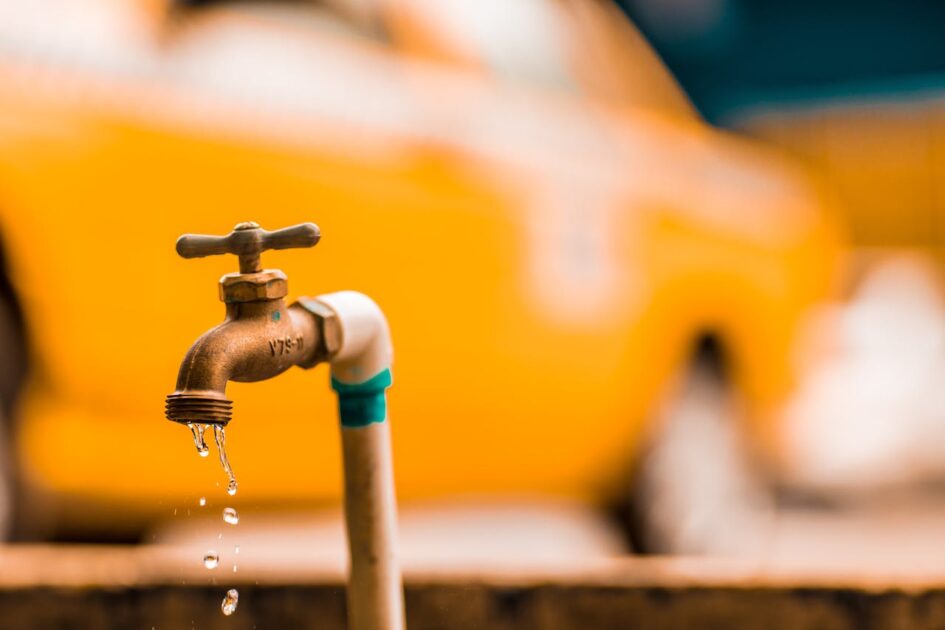Plumbing is an integral part of our daily lives, but we often take it for granted until something goes wrong. When faced with plumbing issues, it’s crucial to distinguish between routine maintenance and emergency situations. Knowing the difference can save you time, money, and a great deal of stress.
In this comprehensive guide, we’ll explore the scenarios that require routine plumbing maintenance and those that demand immediate attention. By the end of this article, you’ll be equipped with the knowledge to make the right call when it comes to your plumbing needs.
Routine Plumbing Maintenance: The Proactive Approach
Routine plumbing maintenance involves scheduled inspections and repairs aimed at preventing problems before they become critical. This approach not only keeps your plumbing system in excellent condition but also saves you from costly emergency fixes. Let’s delve into the areas where routine plumbing maintenance is essential.
1. Periodic Inspections
Scheduled plumbing inspections, typically on an annual or bi-annual basis, are a proactive way to identify potential issues before they escalate. These inspections cover various aspects, including:
- Checking for leaks in pipes, faucets, and fixtures.
- Inspecting water pressure to ensure it’s within a safe and efficient range.
- Assessing the condition of pipes for signs of corrosion or damage.
- Verifying the proper functioning of drains and sewer lines.
By addressing minor concerns during routine inspections, you can prevent them from developing into emergencies that disrupt your daily life.
2. Preventive Cleaning
Regular cleaning of drains and pipes is an essential part of plumbing maintenance. Over time, debris, grease, and mineral deposits can accumulate, causing blockages and reducing water flow. Consider these preventive cleaning tasks:
- Flushing drains with hot water to dissolve grease and soap residue.
- Using a plunger or drain snake to clear minor clogs.
- Scheduling professional drain cleaning services for deeper cleaning and inspection.
Preventive cleaning not only maintains smooth water flow but also prevents sewer backups and potential damage.
3. Water Heater Maintenance
Water heaters are integral to daily life, providing hot water for showers, cleaning, and more. Routine water heater maintenance includes:
- Flushing the tank to remove sediment buildup.
- Checking for leaks and corrosion in the tank and pipes.
- Inspecting the pressure relief valve for proper operation.
Proper maintenance extends the life of your water heater and ensures consistent hot water supply.
4. Fixture and Appliance Checks
Regularly inspecting and maintaining fixtures and appliances can save you from unexpected breakdowns. Check for:
- Leaky faucets and showerheads, which can lead to water wastage.
- Malfunctioning toilets that continuously run or fail to flush properly.
- Dishwasher and washing machine connections to prevent leaks.
By addressing these issues promptly, you can conserve water and energy while avoiding costly repairs.
Emergency Plumbing: When Immediate Action Is Necessary
Emergency plumbing situations demand quick and decisive action. These are scenarios that, if not addressed promptly, can result in significant damage to your property or pose health and safety risks. Here are some common emergency plumbing situations.
1. Burst Pipes
A burst pipe can result from various factors, including freezing temperatures, corrosion, or excessive pressure. When a pipe bursts, it can cause extensive water damage within minutes. Signs of a burst pipe include:
- A sudden and unexplained increase in your water bill.
- Puddles, wet spots, or water stains on ceilings or walls.
- Decreased water pressure in your faucets.
If you suspect a burst pipe, it’s crucial to turn off the main water supply immediately and call a professional plumber in Castle Hills to assess and repair the damage.
2. Sewer Backups
Sewer backups are not only unsanitary but also hazardous to your health. They can result from clogs or blockages in the sewer line, tree root intrusion, or a damaged pipe. Signs of a sewer backup include:
- Multiple drains in your home are clogged.
- Gurgling sounds coming from drains and toilets.
- Foul odors in or around your property.
Sewer backups require immediate attention from a plumber to prevent contamination and further damage.
3. Leaking Water Heater
A leaking water heater can be a sign of a failing tank or pressure relief valve. Ignoring the issue can lead to water damage, mold growth, and potential electrical hazards. If you notice water around your water heater, turn off power to the unit and contact a plumber for assessment and repair.
4. Gas Leaks
If you smell gas in your home, it’s a plumbing emergency with potentially life-threatening consequences. Evacuate your home immediately, avoid open flames or electrical switches, and call your gas company or emergency services. Gas leaks require immediate professional intervention.
5. Frozen Pipes
In regions with cold winters, frozen pipes can lead to pipe bursts and extensive water damage. Signs of frozen pipes include:
- No water or reduced water flow from faucets.
- Frost on exposed pipes.
- Unusual sounds, such as banging or clanging, when using water fixtures.
If you suspect frozen pipes, it’s crucial to thaw them safely or seek professional help to prevent further damage.
Conclusion: The Right Call for Your Plumbing Needs
Routine plumbing maintenance and emergency plumbing situations are two sides of the same coin. By proactively addressing maintenance tasks, you can significantly reduce the risk of plumbing emergencies. However, emergencies can still occur, and when they do, immediate action is essential to prevent damage and safety hazards.
Knowing the difference between routine and emergency plumbing needs empowers you to make the right call. While maintenance tasks ensure the longevity and efficiency of your plumbing system, recognizing and responding to emergencies promptly is crucial to safeguarding your property and well-being. Ultimately, a well-informed and proactive approach to plumbing needs is the key to a smoothly functioning and stress-free plumbing system in your home.
